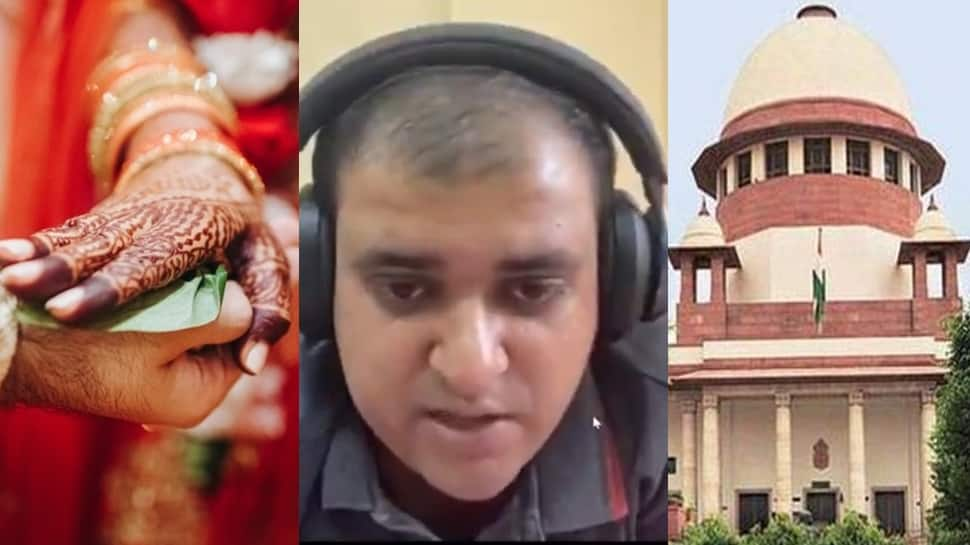 |
|
The tragic suicide of Atul Subhash, a 34-year-old tech professional, has ignited a firestorm of controversy surrounding the misuse of Section 498A of the Indian Penal Code, an anti-dowry law. His death, allegedly stemming from harassment by his estranged wife and her family, underscores a critical issue within the Indian legal system: the systematic bias against accused husbands and their families in domestic disputes. Advocate Nishant Kr. Srivastava, an Advocate-on-Record in the Supreme Court, eloquently articulates the problem, highlighting the inherent flaws and the devastating consequences for those wrongly accused.
Srivastava contends that the legal system, burdened by societal biases deeply rooted in gender inequality, often presumes the guilt of husbands and their relatives. The societal perception of women as invariably innocent victims, while men are automatically cast as oppressors, profoundly impacts the judicial process. This preconceived notion permeates the courts, creating an uneven playing field where the burden of proof rests disproportionately on the accused, even before the legal proceedings begin. The lack of impartial consideration and the presumption of guilt, driven by societal biases, significantly undermine the principles of justice and fairness.
The long and arduous legal process itself, according to Srivastava, functions as a form of punishment. The delays in the justice system, coupled with the constant harassment and mental stress of facing accusations, place an unbearable burden on the accused and their families. This is particularly acute for men, who often lack the same level of familial support that women typically receive. The extended periods of legal battles, with frequent court appearances, financially drain and emotionally exhaust those involved, making it even more difficult to obtain justice, ultimately contributing to the mental toll and the possibility of tragic outcomes like Subhash's suicide.
The Supreme Court's decision in 'Arnesh Kumar vs State of Bihar' aimed to curb the misuse of Section 498A by limiting arbitrary arrests. However, Srivastava argues that while this ruling has lessened the immediate impact of wrongful arrests, it has not addressed the deeper issue of systemic bias and the protracted legal proceedings. The stress associated with false accusations, combined with the slow pace of justice, continues to weigh heavily on the accused, creating a climate where even a dismissal of charges doesn't erase the psychological scars and the financial burden.
Srivastava further points out that the delay in justice often forces accused men and their families into settlements, frequently at the cost of considerable financial compensation. Faced with the endless cycle of court appearances, financial strain, and the emotional turmoil, many individuals opt for settlements to end their ordeal, even if they are innocent. This phenomenon effectively allows those who make false accusations to achieve their goals, whether it's financial gain or revenge, further perpetuating the cycle of misuse and creating a climate of fear and uncertainty.
The lawyer also challenges the inherent biases in certain laws meant to protect women, arguing that the lack of concrete evidence in many cases, coupled with the higher weight given to a woman's statement, creates a dangerous imbalance. Many accusations revolve around events that take place within the privacy of the home, where proving or disproving claims is inherently difficult. This combination of factors, exacerbated by the slow pace of the courts, transforms what are intended as protective laws into potent weapons for unscrupulous individuals to manipulate the system.
Srivastava emphasizes the critical need for societal, police, and judicial sensitization to address the issue. He argues that a more objective and empathetic approach from law enforcement and the judiciary is essential to prevent future tragedies. While he doesn't believe the creation of a National Commission for Men is the solution – fearing that such a body might become equally biased – he emphasizes the urgent need for significant changes in how the legal system addresses domestic disputes and gender imbalances. The long-term solution, he suggests, lies in creating gender-neutral laws that prioritize fair and impartial justice for all parties involved.
The case of Atul Subhash serves as a stark reminder of the systemic problems within the Indian legal system. It highlights the urgent need for reform, not just in the laws themselves, but also in the attitudes and practices of those who implement and interpret them. Without significant societal shifts, and a commitment to unbiased justice, similar tragedies will likely continue to occur, highlighting the devastating consequences of a system that fails to protect its citizens from both false accusations and the grueling, biased process itself.
